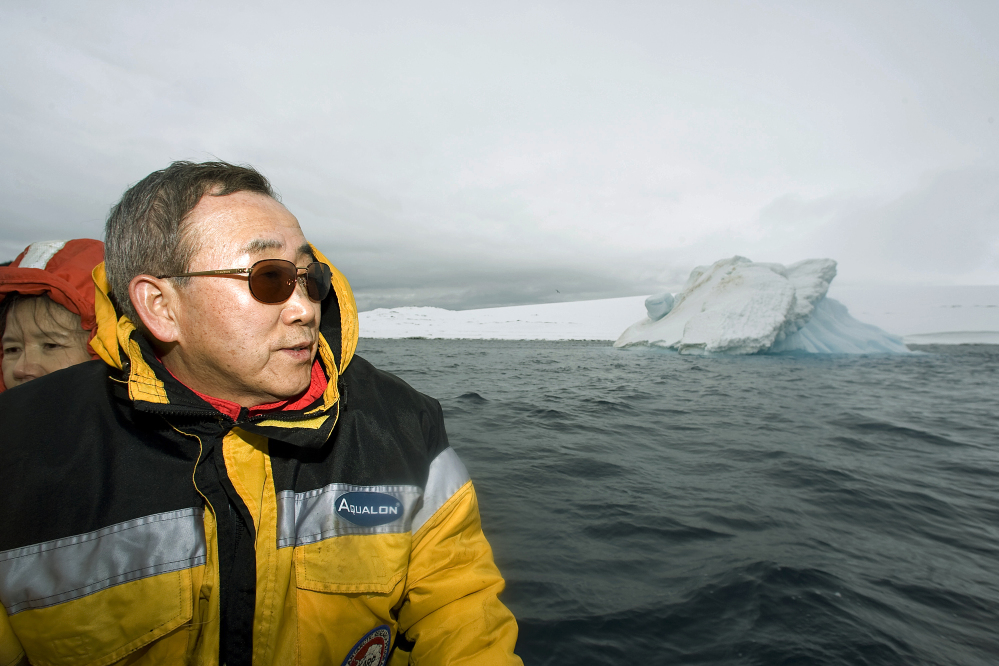UNITED NATIONS — Ban Ki-moon ends 10 years at the helm of the United Nations lamenting the “fires still burning” from Syria to South Sudan but buoyed by a global agreement to combat climate change and new U.N. goals to fight poverty and inequality.
As a final act before his term ends at midnight on New Year’s Eve, the secretary-general will push the button starting the descent of the glittering 11,875-pound ball in New York’s Times Square in the countdown to 2017’s arrival. At that moment, former Portuguese prime minister Antonio Guterres will start his tenure as United Nations chief for the next five years.
Looking back at his stewardship of the United Nations at a farewell news conference earlier this month, Ban told reporters “this has been a decade of unceasing test.”
While he has seen collective action improve millions of lives, Ban expressed frustration at the failure to end Syria’s war, now in its sixth year, and conflicts in South Sudan, Yemen, Central African Republic and Congo, to name a few.
And in rare criticism of world leaders, he blamed unnamed presidents, prime ministers and monarchs for the turmoil in the world today – and expressed disappointment many care more about retaining power than improving their people’s lives. He singled out Syria, saying he can’t understand why it is being held hostage to “the destiny” of one man, Bashar Assad.
Even after leaving the U.N., Ban said he will keep urging new and longstanding leaders to embrace the “pre-eminent 21st century fact” – that “international cooperation remains the path to a more peaceful and prosperous world” – and to demonstrate “compassionate leadership.”
To reinforce this, the secretary-general’s final trip this month was to visit the Abraham Lincoln Presidential Library and Museum in Springfield, Illinois. “Lincoln was a heroic force for equality, integration and reconciliation; and desperately, we need that spirit today,” Ban said of the U.S. Civil War leader.
Ban has expressed frustration at the way the U.N. operates and expectations in some quarters that the secretary-general has the power “to be some almost almighty person.” That’s impossible, he said in September, because the U.N.’s 193 member states make decisions and the secretary-general implements them. The U.N. chief cannot implement his or her own policies.
John Bolton, who was U.S. ambassador to the U.N. when Ban was selected to be secretary-general, said George W. Bush’s administration supported him because “we wanted someone who would do what the member governments wanted.”
Send questions/comments to the editors.



Success. Please wait for the page to reload. If the page does not reload within 5 seconds, please refresh the page.
Enter your email and password to access comments.
Hi, to comment on stories you must . This profile is in addition to your subscription and website login.
Already have a commenting profile? .
Invalid username/password.
Please check your email to confirm and complete your registration.
Only subscribers are eligible to post comments. Please subscribe or login first for digital access. Here’s why.
Use the form below to reset your password. When you've submitted your account email, we will send an email with a reset code.